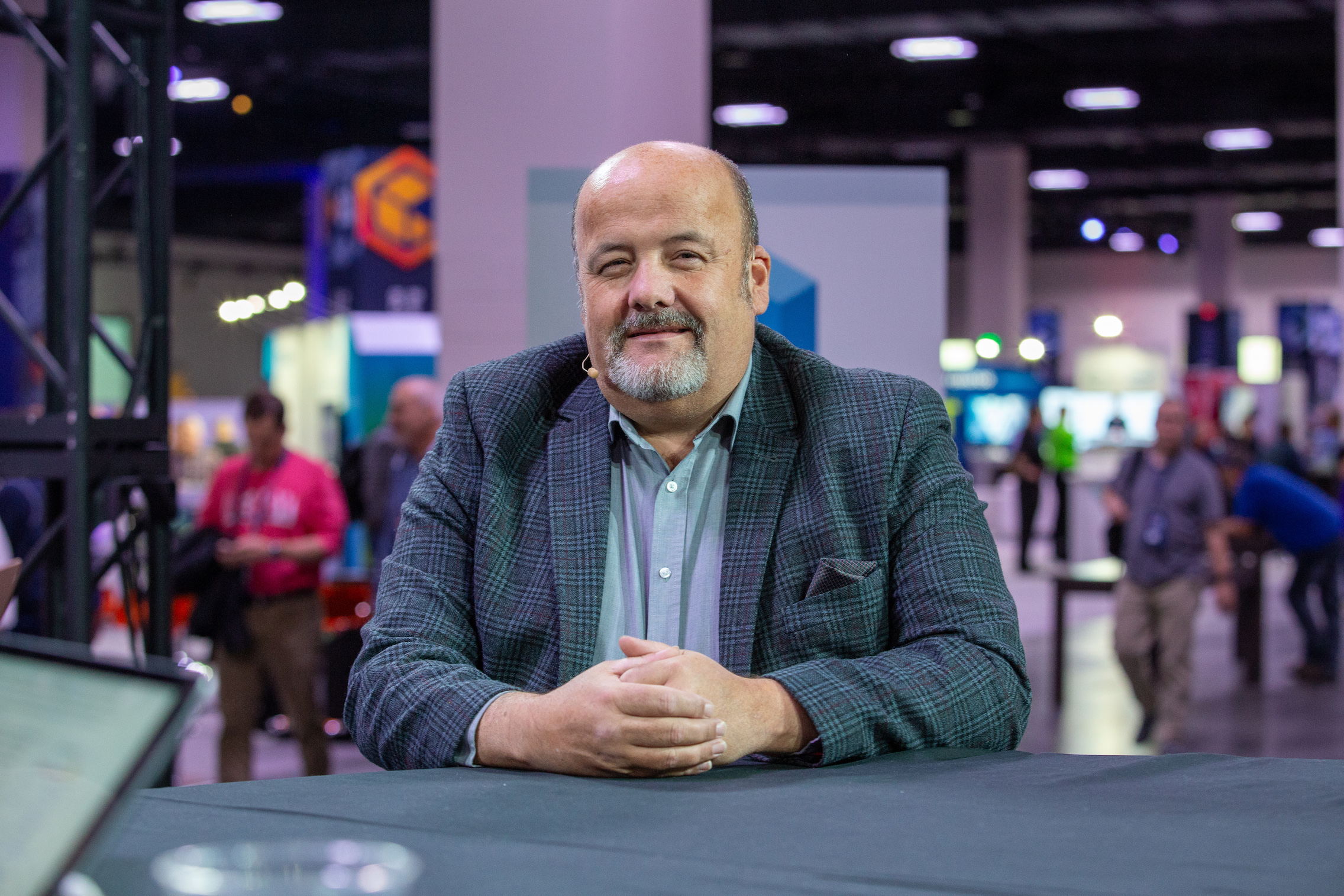 CLOUD
CLOUD
 CLOUD
CLOUD
 CLOUD
CLOUD
Data is worth more than gold for research-based pharmaceutical organizations like AstraZeneca PLC. Efficient analysis of this data can do so much for the industry — it can find cures hidden in the patient’s data, automate research processes, and save lives. But if there is a breach or loss in patient data, lawsuits can be scary. And that’s not all, data loss in these cases can be a matter of life and death.
Cyberattacks and disasters happen, and often times they are targeted to these types of organizations. So having an efficient strategy to instantly restore sensitive patient data is of paramount importance. Starting with a centralized data strategy is helping AstraZeneca, and other health companies, to efficiently store, backup, restore, and perform analysis of key data, according to Scott Hunter (pictured), global infrastructure services director at AstraZeneca.
Data protection and information management company Commvault Systems Inc. is helping organizations like AstraZeneca to centralize and protect data into a one-stop strategy for all their on-premises and cloud environments.
“As more and more of our applications move over on the Commvault platform, then we’ll have a more rounded approach to not only back-up success, but success in the restore and saving things … as well as using the data analytics in a more timely fashion, again for drug and manufacturing research,” Hunter said. “So our back-up for our critical set applications is 99.8% successful.”
Hunter spoke with Stu Miniman (@stu) and Lisa Martin (@LisaMartinTV), co-hosts of theCUBE, SiliconANGLE Media’s mobile livestreaming studio, during the Commvault GO event in Aurora, Colorado. They discussed AstraZeneca’s data strategy and back up and restore solutions (see the full interview with transcript here). (* Disclosure below.)
[Editor’s note: The following has been condensed for clarity.]
Miniman: So Scott, What does data mean to your organization?
Hunter: It means lots of things to AstraZeneca, from how we go about finding that next molecule to discover leading-edge medicines for our patients, all the way to how our salespeople in commercial use data identify the right patients for the right care as well. And, of course, back-office through IT and everyday functions, like HR and finance, as well. So we look after everything either on-premise within our own data centers and the public cloud. So as you can imagine data movement in their own realms in that kind of environment is pivotal to the company being successful going forward.
Martin: So, talk to us about when you came on board. Knowing how critical data is to AstraZeneca’s business, what was the data strategy like a few years ago?
Hunter: When I first joined AstraZeneca, we were largely outsourced to various companies, so we basically didn’t have a [data strategy]. We didn’t really have much of a strategy for looking after data, with five or six different backup products but the same amount of online data storage products as well. So over the last five, six years, we’ve kind of streamlined that down to one key data storage provider in the app and also for backup and restore.
Martin: In terms of the opportunities that [a data strategy] provided the company, where did that initiative come from? Talk to us a little bit about that initiative and the initial directions to where you are now.
Hunter: Our ex-CIO … had a vision for how the company was going to progress and excel in his tenure, and a massive part of that was understanding where our data was, how it was used, and most importantly, how it was protected as well. So, that kind of drove the end solution from the likes of HCL, Cognizant emphasis into looking after our own environments, looking after our own data approaches and strategies as well.
Miniman: So you’re leveraging the public cloud. How does Commvault fit into that discussion?
Hunter: We use Commvault for backing up and restoring our public cloud environments. So having that one backup and restore strategy is pivotal, as well as enabling us to move our data using the visibility solutions you get with Commvault.
Martin: Did you start from a data strategy perspective, like within one division or one part of the company to maybe pilot? Because you ended up with a whole bunch of different software solutions in there and now you standardized on Commvault.
Hunter: Some of the backup and restore sprawl was caused by the individual parts of [AstraZeneca] being able to do their own thing, come up with their own IT budgets. So for us, it just became untenable when we started insourcing. To build a support team, a support organization to look after that many technologies was pretty difficult. Hence why we decided to go for a one-stop strategy.
Martin: What advice would you give companies in any industry that, in almost 2020, may not have a really robust data strategy?
Hunter: That you look at Commvault not just being a backup and restore solution; the codebase which is put together for Commvault is very powerful. From the way that indexes, the information going through, construe the product to how you can use that for things like DRHA — and also the migration of workloads to different data centers or different parts of public clouds. The new vision that they have for data analytics is very powerful as well.
Watch the complete video interview below, and be sure to check out more of SiliconANGLE’s and theCUBE’s coverage of the Commvault GO event. (* Disclosure: TheCUBE is a paid media partner for the Commvault GO event. Neither Commvault Systems Inc., the sponsor for theCUBE’s event coverage, nor other sponsors have editorial control over content on theCUBE or SiliconANGLE.)
THANK YOU